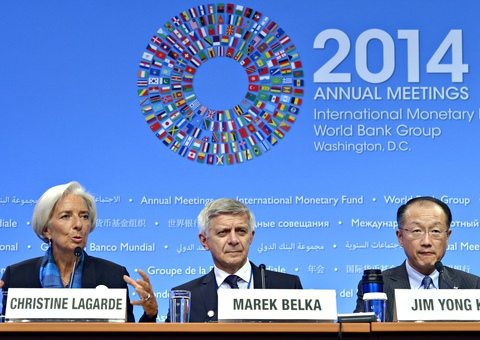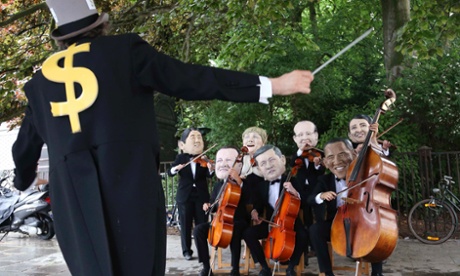Developing nations have long complained that globalisation has enthroned western currencies in such a way as to subsidise living standards in the rich world. Last year, Brazil, Russia, India, China and South Africa – the Brics – even talked of an alternative common currency to replace the dollar. Wealthy countries, perhaps, think that their ambitious goals for aid defuse arguments over their “exorbitant privilege”.
As TS Eliot put it, “between the idea and the reality … falls the shadow”. A paper out last week calculates that the bottom four-fifths of humanity finance the richest fifth to the tune of $660bn a year. The reason, say Gastón Nievas and Alice Sodano of the Paris School of Economics, is that wealthy countries have become the world’s bankers, able to squeeze debtors. Poor nations borrow in rich-world currencies because they run deficits in energy and food, while exporting low-value goods relative to their imports. Markets are liberalised in poor countries and profits flow to the global north.
The US is the biggest winner, with the eurozone being a close second, draining $160bn annually from the poor. Every year, developing nations forgo 2%-3% of their GDP, sums better spent on education, health and the environment. Globalisation’s big winners in the developing world have lost out too. The gains of the G8 group of industrialised nations are “paid by trade surpluses and financial losses of the Brics”.
Last year in Shanghai, Brazil’s president, Luiz Inácio Lula da Silva, questioned the dollar’s dominance. Some of this unease is geopolitical. The US government has weaponised the dollar to sanction enemies such as Iran, Cuba and Afghanistan. Capitol Hill voted to seize frozen Russian central bank assets sitting in US banks to rebuild Ukraine. Wary of western power, many nations are looking for alternatives.
Michael Pettis of Peking University says the question Brazil should ask is what assets it should invest in with the proceeds of its exports. Any nation that tries to displace the dollar faces disruptive adjustments. It would be better, surely, to avoid perpetual indebtedness in foreign currencies by, say, building a nation’s capacity to meet its needs rather than becoming reliant on high-value imports.
The current model also doesn’t work for rich-world voters. By incentivising inflows, the US financial sector gets the clout to distort government priorities. Encouraging the purchase of US assets, for example, sees the US current account deficit rise through reduced income from a smaller manufacturing base and higher spending on imports. Rich countries with a big trade surplus, like Germany, respond by constraining domestic demand – and lowering wages – to remain competitive. This, as the former European Central Bank president Mario Draghi admitted this month, has been a self-defeating strategy.
The climate transition is seeing wealthier countries attempt active industrial policies at home. Though welcome, this pivot is morally untenable as long as poor nations are prevented from doing the same.
The economist Fadhel Kaboub suggests a way out: the World Bank and IMF could lend money to historical polluters to help them pay for their climate debt to poor nations. John Maynard Keynes foresaw the current predicament. In July 1944, with war raging, he proposed at the Bretton Woods conference a scheme to penalise countries that held too much of a reserve currency as severely as those that ran deficits. This was vetoed by the US. Eighty years later, the resolution of the dilemma that Keynes identified remains as urgent as it is elusive.











